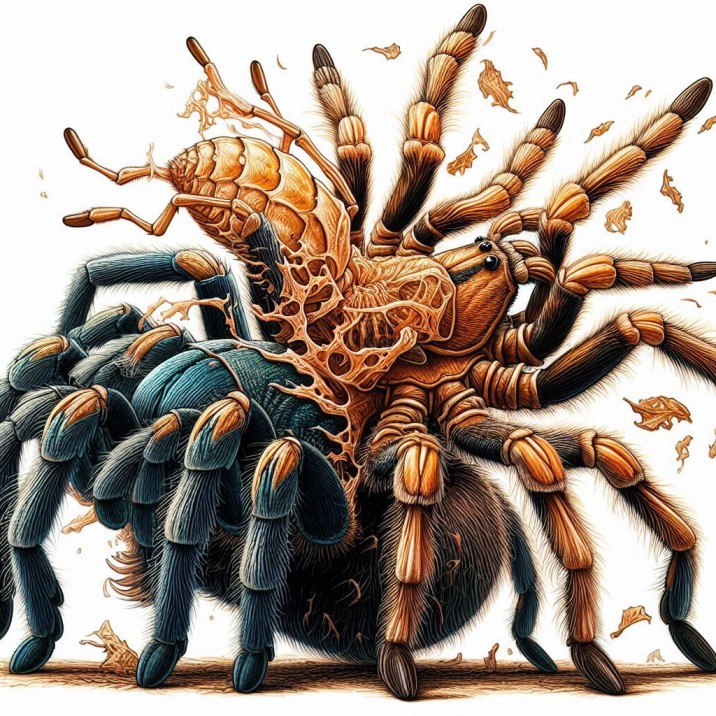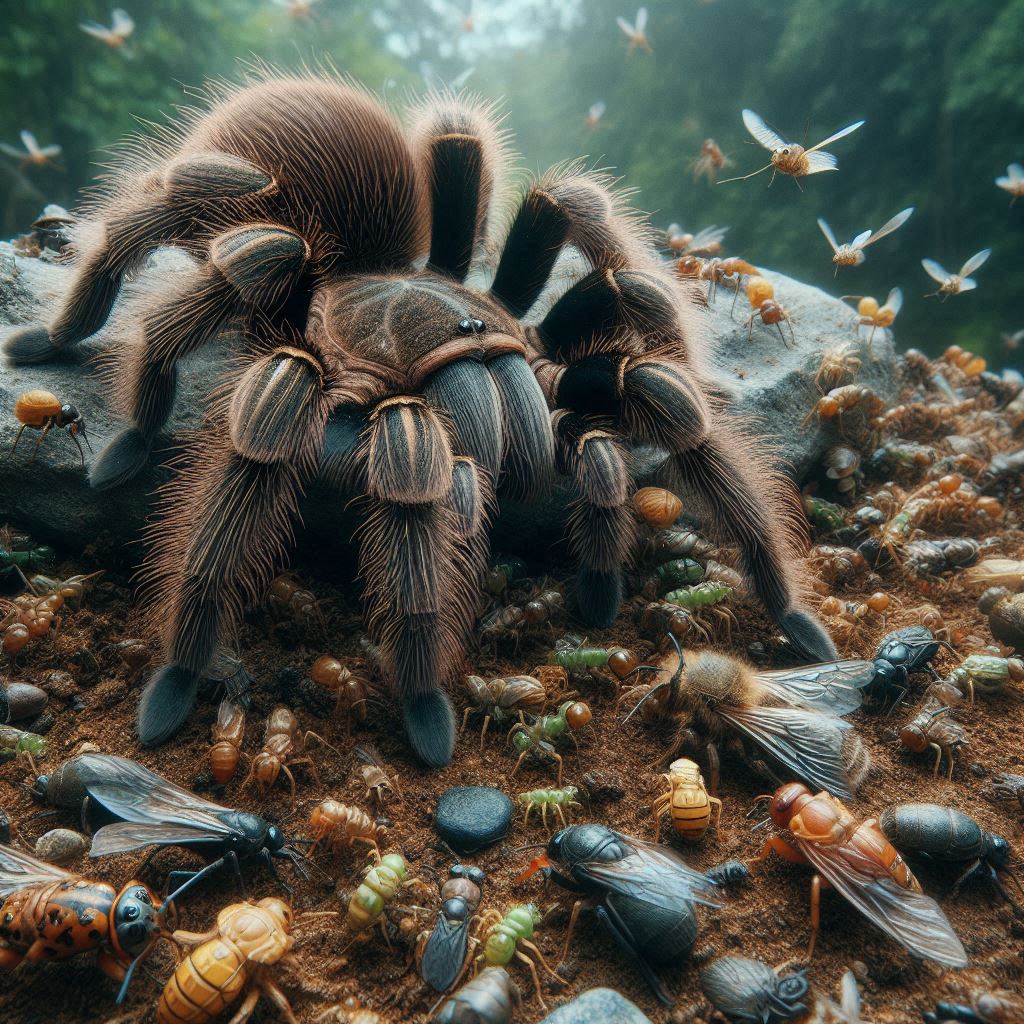Tarantulas are fascinating creatures that often intrigue people with their unique behavior. One such behavior is their refusal to eat, which can be puzzling to tarantula owners and enthusiasts. In this article, we will explore the reasons why tarantulas might not eat, providing detailed explanations that are easy for students to understand. We will also include facts and figures to make the content more informative and engaging.
Introduction
Table of Contents
Tarantulas are a type of spider known for their large size and hairy bodies. They are popular pets for those interested in exotic animals. However, tarantula owners might sometimes notice that their pet is not eating. This can be worrying, but there are various reasons why a tarantula might refuse food. In this article, we will explore these reasons and provide helpful information on what to do if your tarantula is not eating.
Why Do Tarantulas Not Eat?
Molting Process
Tarantulas molt, which means they shed their old exoskeleton to grow. During this time, they might stop eating for several days or even weeks.

Pre-Molt Stage
Before molting, tarantulas enter a pre-molt stage where they prepare to shed their exoskeleton. During this period, they become lethargic and refuse to eat.
Molting and Recovery
After molting, tarantulas need time to recover and harden their new exoskeleton. They might not eat during this recovery period.
Stress and Environment
Tarantulas are sensitive to their environment. Stressful conditions can cause them to stop eating.
Improper Housing
If a tarantula’s habitat is not set up correctly, it can lead to stress. This includes incorrect temperature, humidity, or lack of hiding places.
Handling and Disturbance
Frequent handling or disturbances can stress a tarantula, making it refuse food.
Health Issues
Just like other animals, tarantulas can suffer from health problems that affect their appetite.
Dehydration
Dehydration is a common issue in tarantulas. If they do not have access to fresh water, they may become dehydrated and refuse to eat.
Parasites and Illness
Tarantulas can be affected by parasites or illnesses, which can cause them to stop eating. Regular health checks are important to identify and treat such issues.
Seasonal Changes
Tarantulas are influenced by seasonal changes, which can affect their eating habits.
Breeding Season
During the breeding season, tarantulas, especially males, might lose interest in food as they focus on finding a mate.
Hibernation
Some tarantulas may enter a state similar to hibernation during colder months, reducing their activity and food intake.
Table of Information: Why Do Tarantulas Not Eat
| Reason | Details |
|---|---|
| Molting Process | Tarantulas stop eating before and after molting. |
| Stress and Environment | Improper housing and frequent handling can cause stress, leading to a refusal to eat. |
| Health Issues | Dehydration, parasites, and illness can affect a tarantula’s appetite. |
| Seasonal Changes | Breeding season and colder months can influence a tarantula’s eating habits. |
Conclusion
Understanding why tarantulas might not eat can help owners provide better care for their pets. Whether it’s due to molting, stress, health issues, or seasonal changes, knowing the reasons behind a tarantula’s refusal to eat can ease worries and ensure the well-being of these fascinating creatures.
FAQs about Why Do Tarantulas Not Eat
- Why is my tarantula not eating after molting?
- After molting, tarantulas need time to recover and harden their new exoskeleton, which can take several days.
- Can stress cause my tarantula to stop eating?
- Yes, stress from improper housing or frequent handling can cause tarantulas to refuse food.
- How can I tell if my tarantula is dehydrated?
- Signs of dehydration include a shriveled abdomen and lethargy. Ensure your tarantula has access to fresh water.
- Do tarantulas eat during the breeding season?
- Male tarantulas might lose interest in food during the breeding season as they focus on finding a mate.
- What should I do if my tarantula is not eating?
- Check for signs of molting, stress, dehydration, and health issues. Ensure proper housing conditions and consult a veterinarian if needed.
By understanding the reasons why tarantulas not eat and ensuring proper care, owners can help their tarantulas stay healthy and happy. This article aims to provide valuable information that is both educational and easy to understand, making it perfect for young readers and tarantula enthusiasts alike.

